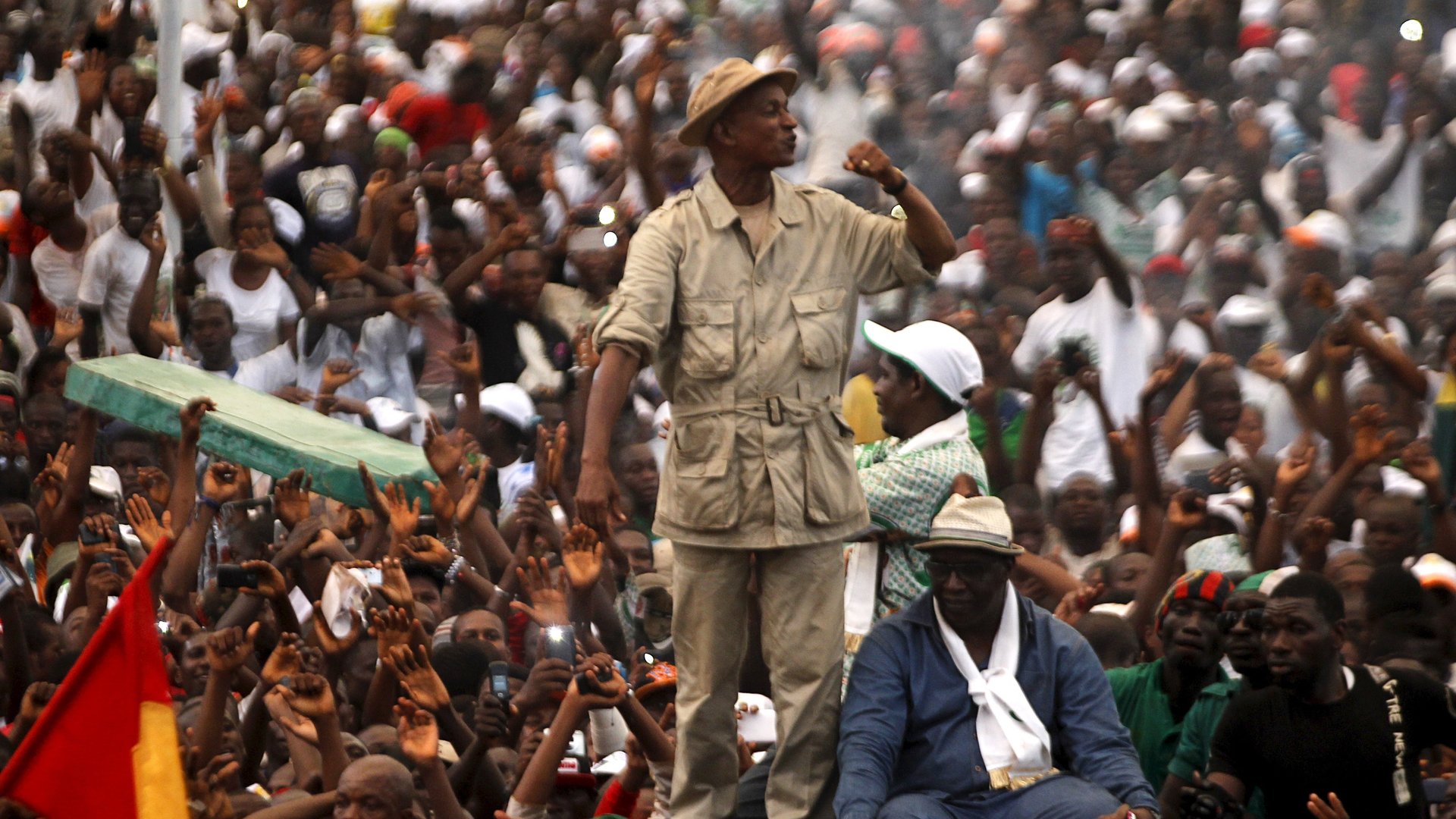Guinea’s president has been re-elected but the opposition says it won’t recognize the results
Guinea’s election—only its second democratic vote since independence from France in 1958—hasn’t been without controversy.


Guinea’s election—only its second democratic vote since independence from France in 1958—hasn’t been without controversy.
On Saturday (Oct. 17), Guinea’s National Electoral Commission officially announced (pdf) the incumbent, Alpha Conde, as winner of the 2015 presidential election, with 57.9% of the vote. But the results are not without dispute. The opposition’s main contender, Cellou Dalien Diallo, who garnered 31.4% of the vote, told Reuters: ”Everybody knows this election was a masquerade organized by the electoral commission and the government to declare Alpha Conde the winner in the first round.”
Even before Guineans went the polls, the question of whether the election would be “free and fair” lingered in the minds of many. Two of the country’s biggest opposition parties—the Union of Democratic Forces of Guinea, led by Cellou Dalein Diallo, and the Union of Republican Forces, led by Sidya Touré—had voiced their concerns about possible electoral fraud.
Diallo pulled out of the election last week after alleging that the fears of the opposition parties had come to fruition: ballot boxes were stuffed to favor the ruling party in some areas, 400 polling stations were closed to prevent opposition voters from casting their votes, and minors were being allowed to vote, he said.
Conde became the country’s first democratically elected president in 2010, after seizing power from a military junta. The 77-year-old has been credited for instituting reforms to the country’s mining sector plagued by corruption—an important source of revenue for the country, which holds one of the world’s largest reserves of bauxite and is also rich in uranium, diamonds, and gold.
Despite the announcement of the disputed results, Diallo is determined not to back down. Guinea’s constitutional court still needs to ratify the results, and opposition groups are allowed to contest the results in the court within eight days of the announcement of the results.
“I will invite other candidates and the citizens, who are the real victims of this electoral hold-up, to organize peaceful demonstrations in accordance with the law to express our outrage,” said Diallo.